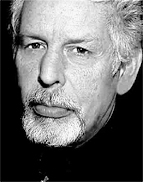 Richard Lourie
Richard LourieIt is time to establish a Hitler Prize for acts of great political evil. Officials and terrorists would both be eligible.
Modern communications and international organizations can prevent political crimes from reaching the levels attained by Adolf Hitler, Josef Stalin or Mao Zedong. But the horrors of Rwanda, the massacre at Srebrenica, Syrian President Bashar Assad's use of chemical weapons against civilians, and 9/11 are sufficiently heinous.
Political leaders are conscious of their place in history and measure themselves against great leaders of the past. Stalin, for example, had great respect for Ivan the Terrible. Repressive political leaders expect a certain measure of criticism, but that only adds to the clamor of their reputation. Critics come and go, but the great leader's name endures.
The Hitler Prize, however, would be as permanently affixed to its recipient's name as the Nobel Peace Prize and will follow them after death. Since the prize will define the recipient's reputation, it may help inhibit other would-be despots to commit the same evils.
Throughout history, the Hitlers and Stalins of the world, along with their henchmen, almost always commit their evils with "good" intentions: for example, to rid the country or world of capitalists, imperialists, infidels, Jews, etc. It is rare that anyone admits that their cruelties were done solely for pleasure and gain.
But the fact that political cruelties require justification suggest that those perpetuating them are not fully convinced of their rightness, or at least they are paying vice's homage to virtue. Either way, they would probably not prefer to be branded with the infamy of the Hitler Prize.
A certain psychological subtlety would, however, be required in the awarding of the prize. To be sure, some psychopathic political criminals might even be so brazen and perverse as to welcome the prize and wear it as a badge of honor. There would be nothing worse than giving the Hitler Prize to someone who would actually want it.
It would be equally important to avoid the politicization of this prize. Political turmoil creates conditions where normal excesses can easily turn into atrocities. They tend to occur in concentrated areas: the Arab world now, Southeast Asia in the 1960s and 1970s, Europe in the mid-20th century. It is important to avoid the impression that one group or region is being unfairly singled out, while keeping in mind that these things tend to cluster.
What exactly would qualify a political crime for the Hitler Prize? How many civilian deaths are required: 100, 1,000 or 10,000? At what point does ordinary political crime become extraordinary? At the very least these questions would spark a global conversation about the always fascinating subject of good and evil.
Who among us has the moral stature and standing to determine which political criminals should be singled out for acts of excessive brutality? In awarding its peace prize, the Nobel Committee has no problem in determining who are the heroes of virtue. At their extremes, both good and evil are — for the most part — clear, dramatic and unambiguous.
Of course, no recipient of the Hitler Prize would travel to where the prize was awarded to receive it in person. All the same, there should be a public ceremony that has to take place somewhere.
But where? Only one country that committed great political evil has sufficiently repented that evil and built safeguards against its recurrence: Germany.
Richard Lourie is the author of "The Autobiography of Joseph Stalin" and "Sakharov: A Biography."
A Message from The Moscow Times:
Dear readers,
We are facing unprecedented challenges. Russia's Prosecutor General's Office has designated The Moscow Times as an "undesirable" organization, criminalizing our work and putting our staff at risk of prosecution. This follows our earlier unjust labeling as a "foreign agent."
These actions are direct attempts to silence independent journalism in Russia. The authorities claim our work "discredits the decisions of the Russian leadership." We see things differently: we strive to provide accurate, unbiased reporting on Russia.
We, the journalists of The Moscow Times, refuse to be silenced. But to continue our work, we need your help.
Your support, no matter how small, makes a world of difference. If you can, please support us monthly starting from just $2. It's quick to set up, and every contribution makes a significant impact.
By supporting The Moscow Times, you're defending open, independent journalism in the face of repression. Thank you for standing with us.
Remind me later.





